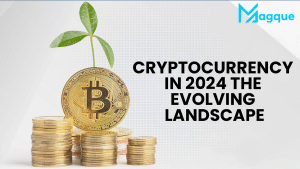In today’s rapidly evolving digital landscape, the fusion of insurtech innovations with NFTs and finance is revolutionizing the insurance industry. Picture this: traditional insurance processes often involve tedious paperwork, long waiting periods and a lack of transparency. But what if I told you that blockchain technology, coupled with non-fungible tokens (NFTs), is changing the game entirely?
Imagine insurance claims being processed seamlessly and efficiently with the help of smart contracts powered by blockchain technology. These contracts, encoded with predefined rules and conditions, automate the entire claims process, reducing the need for intermediaries and minimizing the risk of errors or fraud. This level of automation saves time and enhances trust and transparency between insurers and policyholders.
Now, let’s dive deeper into the role of NFTs in insurance. NFTs, known for their uniqueness and indivisibility, are being utilized to represent digital assets within insurance policies. For instance, imagine insuring valuable digital artwork or collectables through NFTs. Each NFT acts as a digital certificate of ownership, providing proof of authenticity and enabling swift and secure transactions in the event of loss or damage.
Furthermore, integrating finance into NFTs and insurance opens up possibilities. With decentralized finance (DeFi) platforms, individuals can tokenize their insurance policies, turning them into tradable assets on the blockchain. This provides liquidity to policyholders and creates new investment opportunities for savvy investors.
But what about the future? As technology advances, we can expect even more innovative solutions to emerge.
Imagine a world where insurance policies are entirely digitized and interconnected through blockchain networks, allowing for real-time data sharing and risk assessment. This level of interconnectedness could lead to more personalized insurance products tailored to individual needs and behaviours.
In conclusion, Insurtech, NFTs, and finance convergence are reshaping the insurance industry as we know it. By leveraging blockchain technology and digital assets, insurers can streamline processes, enhance transparency, and unlock new opportunities for policyholders and investors. As we look to the future, the possibilities are endless, and the journey towards innovation continues.
What are your thoughts on the intersection of Insurtech, NFTs, and finance? How do you envision the future of insurance in a digital age? Please share your insights with us in the comments below! And be sure to explore Magque, your go-to source for the latest and most intriguing updates in the realms of informative tips & reviews!
FAQs
Q1. What exactly are NFTs?
Non-fungible tokens (NFTs) are unique digital assets representing ownership or proof of authenticity of a specific item or content, such as artwork, music, videos, or virtual real estate. Unlike cryptocurrencies like Bitcoin or Ethereum, which are fungible and interchangeable, each NFT is one-of-a-kind and cannot be replicated or replaced.
Q2. How are NFTs revolutionizing the finance industry?
NFTs are revolutionizing the finance industry by introducing new opportunities for asset tokenization, investment diversification, and decentralized finance (DeFi). They enable the fractional ownership of high-value assets, such as real estate or rare collectables, making them more accessible to a broader range of investors. Additionally, NFTs facilitate the development of innovative financial products and services, such as digital art marketplaces and decentralized lending platforms.
Q3. What role does blockchain technology play in NFTs and finance?
Blockchain technology serves as the underlying infrastructure for NFTs and finance, providing a secure and transparent platform for creating, transferring, and managing digital assets. By leveraging blockchain’s decentralized nature and cryptographic security, NFTs enable trustless ownership and provenance tracking, ensuring the authenticity and integrity of digital assets. Moreover, blockchain-powered smart contracts automate transactions and enforce predefined rules, streamlining financial processes and reducing the need for intermediaries.
Q4. Are NFTs a good investment opportunity?
Like any investment, the value of NFTs can fluctuate based on market demand, scarcity, and perceived value. While some NFTs have sold for millions of dollars, others may need help finding buyers. Investors should conduct thorough research and consider factors such as the creator’s reputation, the digital asset’s uniqueness, and the potential for future appreciation. Additionally, it’s essential to diversify your investment portfolio and only allocate funds that you can afford to lose.
Q5. What are the potential risks associated with investing in NFTs and finance?
Despite their potential for high returns, investing in NFTs and finance carries inherent risks, including market volatility, regulatory uncertainty, and technological vulnerabilities. The speculative nature of NFT investments means prices can fluctuate dramatically, leading to potential losses for investors. Moreover, the developing nature of the NFT market and the lack of regulatory oversight pose challenges in terms of investor protection and legal recourse in the event of fraud or disputes. As such, investors should approach NFTs and finance cautiously and conduct thorough due diligence before making investment decisions.
Read Also This:- Cryptocurrency Trends in 2024



















